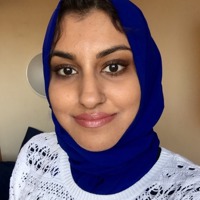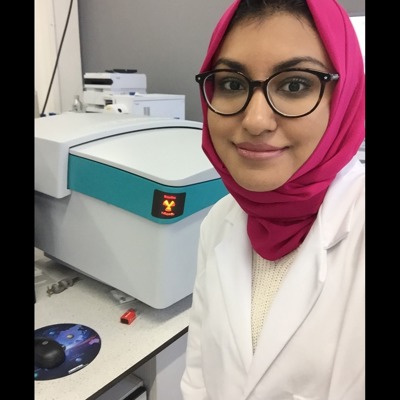
Khadija Jabeen
Doctoral Candidate at Northumbria University
To do my job, you should have a very inquisitive mind set and be emotionally resilient as research (doctoral studies) involves a lot of trial and error. Therefore there can be a roller coaster ride of successes and failures. You definitely need to choose Biology, Chemistry and Maths at Advanced Level if you’d like to become an environmental scientist/exposure scientist. A good grasp of Chemistry and Biology is essential.
About Khadija...
Who am I?
"Because I am incredibly curious by nature (so my Explorer trait is apt) I never take a simple explanation for scientific phenomenon and always wish to dig deeper to find out if other things are at play (which is my Investigator). I also present well and like to teach and disseminate information to the masses (using my Influencer)."
What do I do?
"I am a Doctoral Candidate in the Department of Geography and Environmental Sciences at Northumbria University. I am conducting research as part of the global 360 Dust Analysis (DustSafe) study, with academic partners in Australia, the U.S. and China. This study aims to investigate harmful chemicals and microbes that are could be lurking inside our homes. My research work aims to expand current understanding of how the environment interacts with the human body and what pollutants humans are regularly exposed to. Besides creating a wealth of new knowledge for scientists and other health professionals to benefit from, it hopes to educate the regular citizen about their environment, increasing their environmental health literacy and empowering them. It will therefore, hopefully, serve to inform future government policies and World Health Organisation (WHO) guidelines. The best thing about my doctoral studies is that I get to be as curious and inquisitive as one could possibly be! I am not limited or hindered by a predefined curriculum and can dig as deep (the deeper, the better!) into my subject area as I wish to. I also get to tackle an important global challenge and contribute to society with new knowledge, information and ideas. As my project relies heavily on citizen science, I get to communicate science to large groups of people and whole communities, which empowers me. I also get to work with scientists all over the world, so I am not restricted by borders. I am hoping to go work for an international organisation such as the WHO, UNEP or United Nations in the future as a research officer or advisor."
How did I get here?
"One of the first people to inspire me was my Grandmother, who wanted me to achieve great things in life and become a 'Doctor'. I have also found inspiration from my sister, who is also undertaking graduate studies like me. I have also been inspired by Marie Curie, who is the only woman, and person, to have been awarded two Nobel Prizes."
The life I live
"I enjoy reading books, playing Sudoku, shopping, visiting art galleries or just exploring new places with friends!"
My typical day
"As a PhD student, my typical day revolves around conducting laboratory testing or experimentation to analyse samples, reading academic papers, writing reports or other academic literature and studying various aspects of my subject area. I have the opportunity to undertake graduate level courses to enhance my research training and attend conferences, seminars and workshops to learn about new ideas in my field, as well as network with others in academia and exchange useful knowledge. As part of my work, I also regularly collaborate and work with other PhD students and researchers based in other universities across the globe. I also meet regularly with my doctoral supervisor to get her input and advice on my research protocol and ideas."
My qualifications
"Secondary education (GCSE/O-Levels) Post secondary education (College, A-levels, NVQ3 or equivalent) A Level Chemistry (A) Maths (A) Biology (B) Physics (B) Vocational qualification (Diploma, Certificate, BTEC, NQV4 or equivalent) Undergraduate degree (BSc, BA, etc.) BEng in Chemical and energy Engineering - University of Birmingham Post-graduate degree (MSc, MA, etc.) MSc Environmental Diagnosis and Management - Royal Holloway NEBOSH certificate in Environmental Management "
Khadija's Photos




